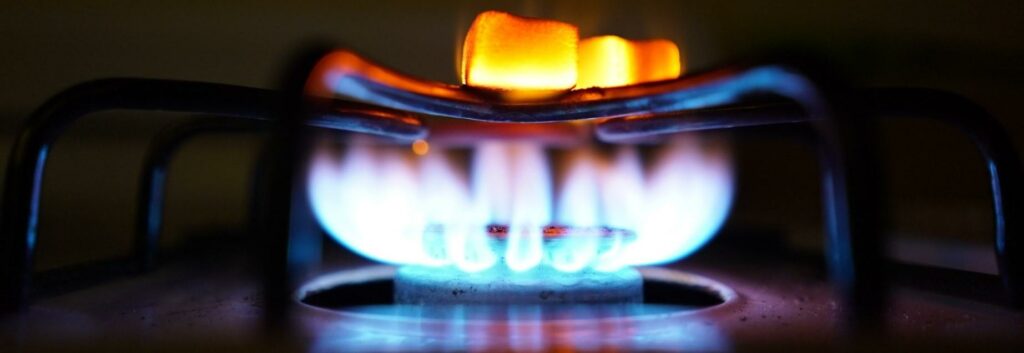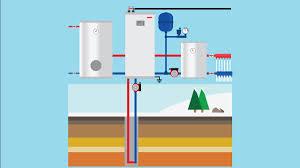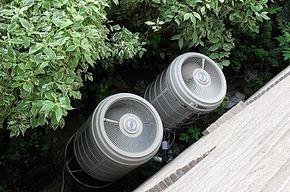Your basket is currently empty!
Written by
Gas Boiler Ban 2025: When Are Gas Boilers Being Phased Out?


Are gas boilers being banned or being phased out in 2025?
The way we heat our homes will soon have to change as steps are taken to exclude gas boilers from new housing construction by 2025 in the U.K.
The replacement heating still has to be decided, however, the most likely is hydrogen-ready boilers or a heat pump, which will lead to future homeowners making the decision on which they want to choose
Don’t worry about the gas boiler ban, we have you covered with our hydrogen-ready gas boilers that avoid the ban. Hydrogen fuel could be the thing that saves us and there is a huge push for it currently within the government.
Get your Fixed Price Boiler Quotes Online
New Gas Boilers with £0 Deposit & 0% Interest Finance Availble
Get the best quotes for boiler installation online in under 1 minute now
So what are the alternatives to gas boilers?
This means finding alternatives to gas boilers, but the way we will heat our homes is changing, and the change will come sooner than you think.
If we want to prevent the worst of climate change, we must stop heating our homes with fossil fuels like natural gas.
The ban means that the homes of the future will be more efficient, but most properties are already burning fossil fuels, so the ban will lead to significant issues for homebuilders when trying to reduce the number of properties using 100% gas boilers.
Unfortunately, the guidance and viable replacements are not among the market leaders yet, and as we said the date to switch to the more green alternative is fast approaching. Heat pumps cost far too much and hydrogen is expensive to harness at the moment.
Get your Fixed Price Boiler Quotes Online New Gas Boilers with £0 Deposit & 0% Interest Finance Availble Get the best quotes for boiler installation online in under 1 minute now
What about Gas Boilers, and Electric Boilers?

The gas industry says the way forward is to continue extracting natural gas, turning it into hydrogen, and burning carbon – the kind of hydrogen that is available to British homes and businesses. The hydrogen is made from natural gas using an existing technology called steam methane reformation (SMR). Hydrogen-ready boilers are able to run on up to 20% hydrogen mixed with natural gas.
Electric Boilers:
Electric boilers can be a potential replacement for gas boilers, as they do not produce carbon emissions when in operation. To make them more energy-efficient, solar modules can be installed in homes and businesses as well as in power plants.
Electric boilers do not contribute to greenhouse gases, because the electricity they use for their work is not generated by burning fossil fuels, but from the main electric grid.
Homes in gas grids have traditionally taken up more space, especially when fitting if you have a cylinder system. Today, even the most efficient boilers are burning fossil fuels even if modern systems try to minimize their carbon emissions through more advanced condensing systems. In contrast, Electric boilers are usually more efficient however they are more expensive to install than gas or LPG boilers, and homeowners/tenants face higher operating costs especially when they buy electricity from utility companies.
If you are currently planning on building a new home or need to replace your current system in the next 5 years, then coal heating is inefficient and a waste of time. It may therefore be time to consider switching to an electric boiler instead of a gas boiler for your home or business. Electric heating is generally more energy efficient than the current gas system, besides the higher electricity costs when compared to gas.
Technically air source heat pumps use electricity but very little in comparison.
Renovating or Building a New Home That Is Insulated?

As a current homeowner, you should consider renewable energy as part of your renovation or expansion. New buildings are a great opportunity to ensure that you integrate renewable systems and effective insulation into your home in the future, while meeting changing standards which are on the near horizon.
In his Spring Statement, the Chancellor announced the new standard for future homes, which will include the new rules and regulations for heating British homes by 2040, with a focus on energy efficiency. Gas central heating has long been considered the most cost-effective – effective and efficient way to heat our homes. But, the technology that works best for remote 5-bedroom farmhouses cannot be applied to inner-city 2-bed terraces.
It is important to also note that homeowners could be forced to replace their gas boilers to ensure Britain meets its target of being carbon neutral by 2050, ministers have warned. To meet our legally binding climate targets, we will need to eliminate almost all greenhouse gas emissions from British buildings by 2040, according to the Department of Energy and Climate Change.
The Government will publish a White Paper later this year setting out the major decisions the UK needs to take to achieve these goals.
Latest Legal Boiler Updates and Homebuilder Notes:

Former Chancellor Hammond appeared to be backing away from his earlier pledge to implement the Government’s climate change strategy in late 2019, which called for all new homes to be gas-fired and heated by 2025. Environmental groups welcomed the decision, saying the Chancellor was “more ambitious and systemic than radical” and the government was “unable to get a grip on climate change.” He said the white paper would consider “whether or not we should ban gas central heating in homes altogether, and when.”
Housing developers said they supported the transition to a greener system, but alternative heating systems were often more expensive and less effective, pointing out that heat pumps needed larger radiators and did not work as well in cold snaps. A spokesman for the Housing Federation said: “The running costs and comfort of homeowners are our absolute priority.
Fortunately, this development was anticipated years ago and we have refined our product range to include a range of gas-powered heating systems and electric heaters. As Britain takes major steps to cement its place in a greener, greener future, we see the rise of electric heating as an important step in the right direction for our country’s future.’’
In recent months, the Government has announced plans to phase out gas-fired central heating, forcing new homes to use alternative methods of keeping warm. In a recent Spring Statement, Chancellor Philip Hammond promised to call for an end to fossil fuel heating by 2025 to deliver low-carbon heating for Britain’s future homes. The Climate Change Committee said all new properties must be connected to the gas grid, allowing developers to choose from a range of alternative heating options such as electric or gas heating.
Conclusion:

Although, as with most government policies they are subject to change, if you are building or renovating a home in the next 2-3 years, you may want to switch to an electric, or heat pump boiler system in order to adhere to the new forthcoming rules. That being said, please check back on our website to see regular updates on new boiler systems.
If you have a current gas system and need a new boiler quote then please click our website and see how we can provide a custom quote specific for your home.
Thanks again for reading and check out our website for more helpful boiler tips and reviews.
Get your Fixed Price Boiler Quotes Online
New Gas Boilers with £0 Deposit & 0% Interest Finance Availble
Get the best quotes for boiler installation online in under 1 minute now
Written by
Get your Fixed Price Boiler Quotes Online
New Gas Boilers with £0 Deposit & 0% Interest Finance Availble
Get the best quotes for boiler installation online in under 1 minute now





